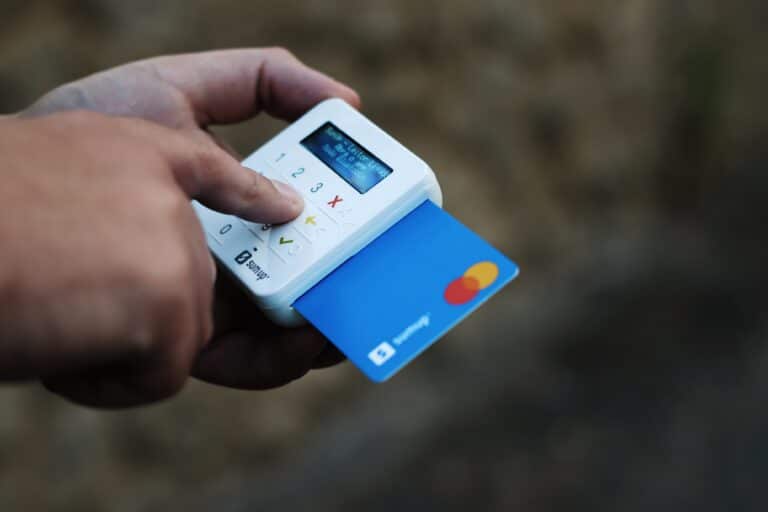The country’s largest credit card processors are backing away from plans to implement a specialized code for gun retailers.
Visa, Mastercard, and Discover decided on Thursday that the three companies would “pause” work related to creating and implementing a Merchant Category Code (MCC) for businesses that sell guns. Visa told The Reload its decision to pause was spurred by legislation in various states looking to discourage use of the code.
“Visa’s mission is to facilitate secure and reliable global commerce in compliance with applicable laws,” Julia Thompson, a Visa spokesperson, told The Reload. “Multiple U.S. states are considering legislation to prohibit or restrict the use of the new merchant category code (MCC) for gun and ammunition stores. There is now significant confusion and legal uncertainty in the payments ecosystem, and the state actions disrupt the intent of global standards. Accordingly, Visa is pausing implementation of the MCC.”
A spokesperson for Discover told The Reload the company was removing its already finalized MCC “to continue alignment and interoperability with the industry.”
Mastercard told Reuters the company will be halting its plans as well. News of the pause was first reported by Bloomberg.
The about-face by the three corporate behemoths pours cold water on a larger plan gun-control advocates had to use the merchant code to track gun sales and prevent mass shootings. That plan was already unlikely to work without further changes because credit card companies can’t see what products consumers buy from a retailer regardless of the MCC attached to the sale. Still, the larger plan becomes much harder to achieve if major industry players are already backing down on the first policy change gun-control activists have pushed for.
The pause also provides a major win for the firearms industry and Republican state lawmakers who sought to pressure large financial companies into abandoning the plan by using legislation to discourage them from using the new MCC code. Bills looking to prevent the use of gun store codes have been introduced in Texas, Florida, Mississippi, Oklahoma, West Virginia, and Wyoming.
American Express, which also previously announced its intention of creating a gun sale merchant code, did not respond to a request for comment on whether it would join the other companies in the pause.
Opponents of the use of gun store code cheered the announcement.
“Visa and Mastercard came to the correct conclusion,” Montana Attorney General Austin Knudsen (R.) said.
Knudsen previously spearheaded an effort by 24 state attorneys general to warn the major credit card companies against pursuing the new code last September. While Knudsen said he was pleased with the decisions of Visa and Mastercard, he questioned why the companies weren’t announcing a permanent end to the effort.
“They shouldn’t just ‘pause’ their implementation of this plan—they should end it definitively,” he said. “Discover and American Express should do the same. This measure will do nothing to improve public safety while invading consumer privacy and inviting coordination between corporations and government agencies to erode Americans’ fundamental right to keep and bear arms.”
Gun-control advocates, meanwhile, were upset to see the companies back away from plans to implement their preferred strategy.
“It is very frustrating to see a pause on this lifesaving work,” Kris Brown, President of the group Brady United, said in a Twitter post. “Merchant category codes (MCC) can assist credit card companies in flagging suspicious firearms and ammunition purchases. It is a crucial solution we need in the fight to #EndGunViolence.”
The course reversal comes after the International Organization for Standardization (ISO), a voluntary membership organization, announced it had created a brand new Merchant Category Code for gun retailers last September. The ISO had faced years of pressure from activist financial institutions, like Amalgamated Bank, and top Democratic lawmakers to create the code.
Shortly after ISO decided to create the code, major financial companies agreed to adopt it alongside the hundreds of other MCC codes they already use. Visa, MasterCard, American Express, and Discover all announced plans to start using the code, drawing sharp rebukes from gun-rights advocates and top Republican lawmakers in both the House and Senate.
Gun-control advocates have complained that several mass shooters have used credit cards to purchase guns and ammo in the lead up to their attacks. They argue an MCC code for gun dealers could be used to identify potential mass shooters or gun traffickers by flagging “suspicious” purchases or patterns of spending, though details on how a theoretical flagging system would work remain unclear.
Gun-rights supporters argue the code will be used to chill legal firearms commerce. They say the new MCC could be used to track all lawful gun sales, create a defacto registry, or enable banks to cut off the use of their cards at gun businesses.
However, Visa has tried to downplay both the aspirations of code supporters and the fears of code opponents. It wrote a blog post explaining its view of the new MCC shortly after agreeing to adopt it but before it ultimately changed its mind.
“MCCs do not give Visa or any other payment network visibility into product-level data, also known as ‘SKU-level’ data,” the post reads. “When we process a transaction, we have no visibility into what items a consumer is purchasing — this is true irrespective of which MCC applies to a merchant.”
UPDATE 3-09-2023 3:49 PM EASTERN: This piece has been updated to include comment from Discover.





